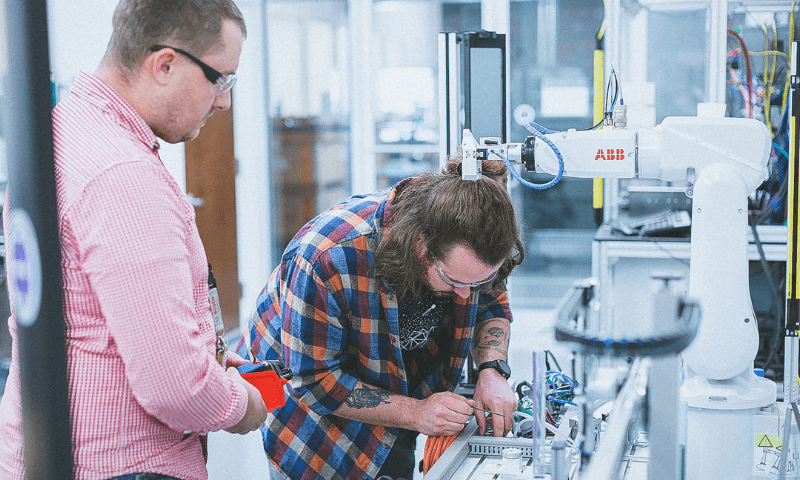Tier 1 Automotive Supplier Decreases Recruiting Costs with Standardized Co-op Program
MAU’s standardized co-op program slashed a client’s recruiting costs, affirming our expertise in efficient staffing solutions

MAU’s tier 1 customer is an innovative, Fortune 500 industrial giant specializing in manufacturing automotive systems. Its skilled workers, combined with efficient manufacturing processes, have resulted in record production quality for a range of its products.
The Challenge
Company’s Current Co-op Program Was Stagnant and Underutilized.
The automotive manufacturer utilized co-op programs, engaging with college and university students in the area, but neither the recruitment process nor program curriculum was ever standardized. As a result, none of the parties involved received maximum value from their investment in the co-op program. In fact, the majority of students and school co-op offices were unaware that there was even a program in place.
The students involved in the company’s co-op program were often underutilized due to a lack of outlined responsibilities or expectations. In addition, management did not have systems in place to gather constructive feedback from co-ops and supervisors involved in the co-op programs that would help lead to continuous improvement.
The end goal was to design, implement and manage a more efficient co-op program that the company did not have to internally run. In return, the company also wanted to create a pool of entry-level talent, from which it could choose hires when needed.
The Solution
MAU Developed a Comprehensive Co-op Program.
MAU created and managed a complete co-op program, which engaged company supervisors and co-op participants throughout the entire process. MAU included criteria of certain elements to standardize the program:
Competencies and Job Descriptions:
Within each respective discipline, MAU defined success factors for each entry-level position. Then, based on the defined core competencies, MAU created accurate and consistent job descriptions, which were used to properly communicate job development guidelines and training needs to co-ops and supervisors.
Feedback Surveys:
MAU developed and administered rotational assessment surveys for co-ops and supervisors to ensure that program participants developed key skills, and that departmental needs were being met.
Improved Relationship Management:
MAU established rapport between those involved in the co-op program to include targeted schools, co-op offices, diverse student groups and supervisors.
Streamlined Recruiting:
Representation at school job fairs, on-site interviews and personal relationships with co-op officials resulted in the recruitment of top students.
The Results
MAU’s Co-op Program Improves the Bottom Line.
- Reduced Costs: Throughout the program, MAU reduced the cost-per-hire total by 48% of its goal, resulting in a savings of more than $140,000 per year over four years.
- Top Talent: The company’s involvement in the co-op program increased its exposure to diverse student groups, and improved its overall company image across co-op offices and campuses.
- Standardized Jobs: MAU’s standardization process led to clear, concise job responsibilities and expectations, providing students with the right direction to perform value-added tasks for the company. And, with these tasks completed by co-op students, senior-level associates were able to focus on critical business functions.
MAU’s structured co-op program created a supermarket of diverse candidates with proven experience. This supermarket produced higher caliber entry-level, exempt hires, and led to decreased recruiting costs. MAU’s management of the program freed my staff to work on core functions and strategy. This is truly a value-added program.
-HR Manager

